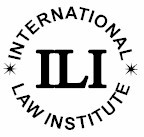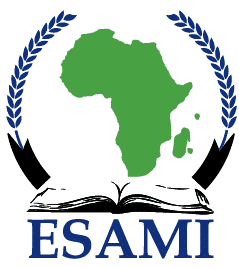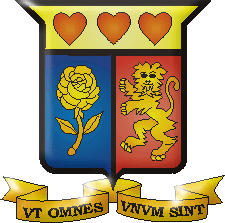Courses in Developing Countries
Background
In 2009, DFC decided to increasingly branch out its capacity development support to take place in developing countries, aligning more closely to the capacity needs and capacity development policies of the countries. The future training should build on and support the strengthening of local training institutions to run courses. DFC is therefore looking for partners among training institutions which are capable and interested in working with DFC on capacity development initiatives.
The most important source for identifying capacity needs is considered to be the national development plan and poverty reduction strategy (PRSP) – in some of the countries supported by a number of donors with a joint assistance strategy (JAS). In all the countries the PRSP, as well as the JAS, do confirm the thorough need for developing and strengthening the capacity of the public sector, as well as the capacity of the private sector and civil society to take on the challenge of ensuring growth, development and fulfilment of the MDGs.
A pilot phase was designed for East Africa and Francophone West Africa. Building on the experience from the pilot phases, DFC expand activities in Africa and subesquently Asia and Latin America. Identification missions and subsequent working visits are taking place regularly.
Therefore, DFC has been looking for opportunities to support training institutions/providers, which are running or can run courses in one or more of these areas:
1. Public sector management and international cooperation.
2. Good governance, democracy, human rights
3. Mainstreaming issues such as gender and environment.
4. Sector specific courses which – according to Danish priorities in development cooperation – could be within the fields of: agriculture, health, environment, private sector, climate change, disaster risk reduction, etc.
In conclusion, DFC is on an on-going search for training institutions which are relevant and interested in a professional cooperation with DFC in order to offer training and courses which correspond closely to the identified needs for capacity building in relation to development and poverty reduction.
Courses in Eastern and Southern Africa
After the identification mission to East Africa in early 2009, DFC and the Consultant decided to move forward with a number of institutions to organise and host the first courses in early 2010. The first step was to pay longer visits to the institutions identified to work out Memorandums of Understanding. This took place in late May – early June. To follow up on this, DFC is proud to announce partnerships with the following institutions:
- Uganda Management Institute (UMI) – www.umi.ac.ug

- International Law Institute – African Centre for Legal Excellence (ILI-ACLE) – www.iliacle.org

In February 2010, an MoU was signed with a Tanzania-based training institution and DFC is therefore proud to announce its partnership with:
- Eastern and Southern African Management Institute – www.esami-africa.org

DFC proudly announces that in October 2011, an MoU was signed between Strathmore University (Nairobi, Kenya) and DFC.
- Strathmore University – www.strathmore.edu
DFC proudly announces that in December 2011, an MoU was signed between Universidade Eduardo Mondlane(Maputo, Mozambique) and DFC.
- Universidade Eduardo Mondlane – www.uem.mz

The first courses were conducted in the first half of 2010.
The courses reflect nodes of synergy between DFC and the partner institutions and will be aligned to national priorities and organised upon consultations with the Danish Embassies. Some courses will be conducted with a national target group in mind whereas others may have a regional target group. Courses will be announced on DFC’s as well as the partner institution’s website.
Courses to be conducted include:
In Kenya:
Public Policy
In Uganda:
Procurement – arranged by UMI
Promoting Government Integrity and Anti-Corruption – arranged by ILI-ACLE
Democracy, Human Rights and Human Rights-based Approaches to Development – arranged by ILI-ACLE
Results Based Monitoring and Evaluation – arranged by UMI
In Tanzania:
Leadership, Financial Management & Governance – arranged by ESAMI
Formation en Afrique de l’Oueste/Courses in West Africa
Au Benin:
Gestion du Changement Organisationnel – du 20 juin au 1 juillet, 2011 (Ecole Nationale d’Adminstration et de Magisstrature – ENAM).
Au Burkina Faso:
Adaption aux Consequences des Changements Climatiques – du 4 au 15 octobre (l’Institut International d’Ingéniere de l’Eau et de l’Environnement (2IE) de Ouagadougou).
Modalites de Mise en Æuvre de l’Approche Sectorielle – du 3 au 17 juin et du 29 août au 10 septembre
Courses in Asia
Disaster Management – November 7 – 25, 2011 (Asian Disaster Preparedness Centre, Bangkok, Thailand)
Staff Exchange Programmes
DFC will promote exchange beween partner institutions, Danish course providers and DFC. One way in which this is achieved is through the use of trainers from partner institutions on courses conducted in Denmark. Likewise staff from Danish course providers may be involved in courses conducted in developing countries.While staff and trainers are in Denmark, they will also be attached to DFC for a few days. Furthermore staff from DFC will visit partner institutions on a regular basis.
Guidelines for South Training Institutions
Guidelines for how STIs should approach training delivery are derived from the same guidelines available to Danish places of study. In principle DFC does not distinguish between courses in Denmark and courses conducted outside Denmark by established STI partners in terms of training delivery, quality, methodology and evaluation. The only difference is in the co-funding due to lower costs on e.g. airfare.
The guidelines can be downloaded here.

